I’m sure you have heard people talk about gluten-free diet and avoiding foods with gluten.
Alot of Nigerians do not know much about gluten and a gluten-free diet. This article aims to provide answers to questions like What is gluten? What is a gluten-free diet? Who are the gluten-free diet for? and Which Nigerian foods are gluten-free?.
Read on to get all the answers.
What is Gluten?
Gluten is a kind of protein that is found in most grains, such as wheat, rye and barley.
It is also found in many common in foods including pizza, pasta, cereal and bread. Gluten does not provide any essential nutrients to the body.
The function of gluten is to help foods such as cereal, bread, and pasta glue together or to hold their shape.
Gluten actually means ‘glue’ in Latin. It is also found in cosmetic products, like lip balms, and also in the glue on the back of stamps and envelopes.
What is a gluten-free diet?
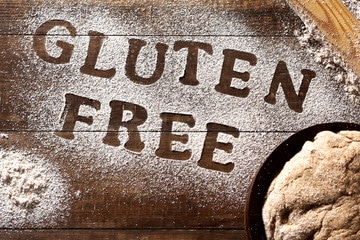
A gluten-free diet is a diet which comprises of foods that are gluten-free. However, who are the gluten-free diet for?
A gluten-free diet is for two main categories of people.
• People with celiac disease
• People with gluten sensitivity
Whenever people with celiac disease eat foods with gluten, they have an immune reaction that is triggered.
Inflammation begins to develop in the body and causes damage in their digestive tracts and other parts of their body. It is estimated that up to 1% of the Nigerian population has celiac disease.
People with gluten sensitivity are another group of people who shouldn’t eat foods containing gluten.
The condition is rare, and it is called non-celiac gluten sensitivity (NCGS), that means that even though they have celiac disease.
They experience many of the same symptoms as those who have celiac disease when they consume gluten. Symptoms of this condition include bloating, constipation, and diarrhoea.
Is gluten bad for your health?
As you have seen, a gluten-free diet is for people with celiac disease or gluten sensitivity.
However, many people are on gluten-free diets and believe that it is much better for their health.
Eliminating gluten from your diet doesn’t pose any dangers. However, you should be mindful of what you replace it with.
If you don’t have any of those conditions but decide to go on a gluten-free diet, your diet should be packed with fiber, fruits, veggies, quinoa, other non-gluten grains and vitamin D.
There are a huge number of naturally gluten-free foods, and they are also gluten-free alternative products available like bread and pasta.
Nonetheless, are they Nigerian foods that are gluten-free? Let’s find out.
15 Nigerian Foods That Are Gluten-Free
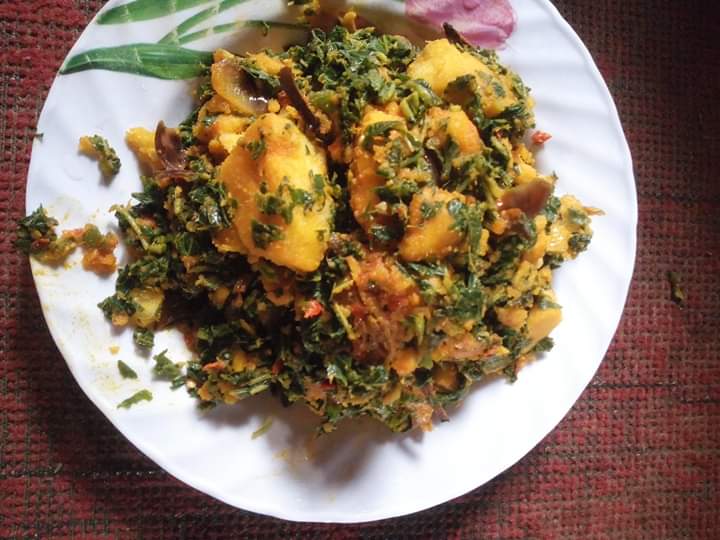
A lot of our Nigerian foods are very healthy and mostly gluten-free. Most of our Nigerian swallows and staple foods are gluten-free. The key is to avoid gluten ingredients in your Nigerian dish.
Below are a list of gluten-free Nigerian foods and ingredients.
1. Nigerian swallows
Most of our healthy Nigerian swallows are gluten-free. Swallows such as garri (eba), fufu, and tuwo are made from cassava root and maize.
2. Yams and yam flour
Yams are gluten-free and can be used as a traditional staple food in Nigeria.
Pounded yam is a staple food in Nigeria that would make a great gluten-free Nigerian diet.
Yam flour is also a delicious ingredient used for preparing gluten-free foods.
3. Plaintains and plantain flour
Plantains are part of the natural, gluten-free food. Plantains have so many health benefits and can be incorporated into lots of different Nigerian recipes.
It is very accessible, and affordable, you can even buy plantain online.
Plantain flour is also a tasty alternative. Foods made with plantain flour like Amala ogede or elubo ogede and plantain fufu week healthy Nigerian staple foods that do not contain gluten.
4. Ogbono
Ogbono is an ingredient used in preparing ogbono and okra soup. It is good for those on a gluten-free diet.
Ogbono also has many other nourishing health benefits.
5. Nigerian soups
It is interesting to know that many healthy Nigerian soups m can be made completely free from gluten, as long as you don’t add any ingredients that contain gluten.
Soups like edikang Ikong, Egusi soup, owo soup and Banga soup do not necessarily have gluten.
6. Coconut flour
Coconut flour is a delicious ingredient that everyone should try cooking with. It can serve Adam alternative to wheat flour or grain flour. You can Buy Coconut Flour on Jumia
7. Nigerian snacks
Our healthy Nigerian snacks like moin moin, akara, plantain chips and okpa are all gluten-free Nigerian foods.
8. Potato flour
Potato flour is another alternative flour to use for a gluten-free diet. They can be used to make bread, French fries and many other snack products.
9. Soybeans and Soya Flour
Soybeans are rich in proteins and provide your body with so many nutrients. Soya flour is prepared by grinding roasted soybeans into a powdered form.
Soya bean flour is a healthy food and is used in many food products. They can be used to prepare a gluten-free Nigerian meal.
10. Fruits
Many local fruits in Nigeria are completely gluten-free. Fruits such as Bananas, avocados, breadfruit, garden eggs, cucumbers, grapefruits and apples are all gluten-free.
11. Acha (Fonio)
Fonio (Digitaria exilis), also known as acha in Nigeria, is a tiny variety of millet of grass species that is grown in many parts of Africa.
Acha is highly nutritious and has a lot of health benefits. It is also gluten-free.
12. Kunu drink
Kunu drink is a popular dairy drink in Nigeria. It can be prepared using numerous grains, including millet, sorghum, maize, rice, etc.
This drink is packed with a lot of essential nutrients, vitamins, and minerals. However, kunu is also a gluten-free Nigerian drink.
13. Abacha (African Salad)
Abacha is a delicious meal that is predominantly eaten in the South Eastern parts of Nigeria.
Abacha, also known as African salad, is made from dried shredded cassava, utazi leaves, pepper, potash, red oil, ugba (ukpaka), crayfish, and diced garden eggs.
It is equally a healthy gluten-free Nigerian food option.
14. Guinea corn
Guinea corn, also known as sorghum, is a popular grain that is cultivated in Nigeria.
Guinea corn has a number of remarkable health benefits as it is loaded with nutrients.
It is also gluten-free.
15. Kefir
Kefir is another gluten-free drink in Nigeria.
It is a cultured, fermented milk drink similar to yogurt but made from kefir grains.
Kefir is a wonderful choice for many people who suffer from lactose intolerance, celiac disease, or gluten sensitivity.
The kefir grains are not related to wheat or oats. Hence, there is no gluten in kefir drink.
Additional gluten-free foods in Nigeria include:
- Meat
- Chicken
- Fish
- Eggs
- Milk
- Tapioca
- Natural Yoghurt etc.
You can also find gluten-free foods products in some food stores in Nigeria. Those foods are normally labeled “gluten-free”.
Nigerian Foods That Contain Gluten
Just like we mentioned the Nigerian foods that are gluten-free, here are also some Nigerian foods that contain gluten. You should avoid them if you have celiac disease or gluten sensitivity.
- Wheat
- Semolina
- Wheat germ
- Rye
- Mayonnaise
- Ketchup
- Some soups prepared with gluten ingredients.
- Oats (except it is specified as gluten-free)
- Barley
- Hot dogs
- Canned baked beans.
- Beer
- Bread (except it is specified as gluten-free)
- Energy drinks etc.
Thanks for reading. I hope that you found it helpful. Please leave a comment below and don’t forget to share. Keep on visiting www.healthguide.ng
If you no join us for social media wetin u gain… Please kindly:
- Follow us on Twitter
- Like us on Facebook
- Follow us on Instagram.
YOU SHOULD ALSO READ:
- 5 Nigerian Foods To Eat After A C-section
- 7 Nigerian Foods To Eat When Trying To Conceive
- 5 Nigerian Foods to Avoid While Breastfeeding
- 7 Nigerian Foods That Are Rich In Oestrogen
- 7 Nigerian Foods To Eat If You Have Acid Reflux Disease
- 7 Healthy Nigerian Drinks For Losing Weight
- 7 Healthy Nigerian Drinks For Weight Gain
- 7 Healthy Nigerian Foods for Hypertensive Patients
- 8 Nigerian Foods That Are Rich In Folic Acid
- 12 Nigerian Foods That Boost Breast milk Production
Collins Nwokolo is a human physiologist, writer and health enthusiast. He loves writing helpful articles on health and fitness, which he enjoys sharing with everyone.
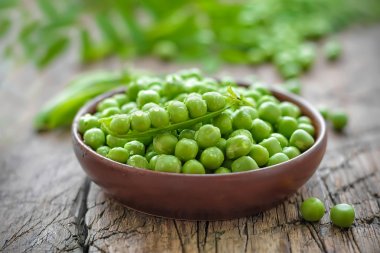
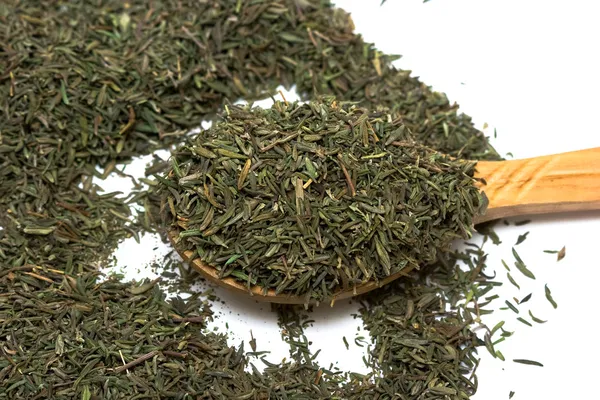

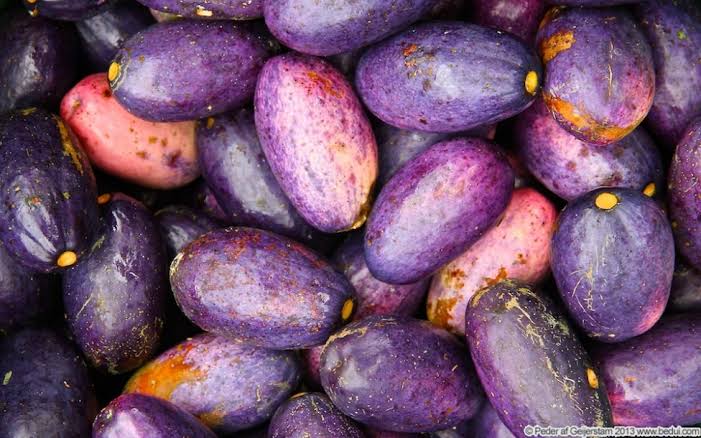

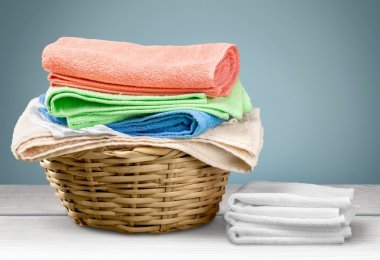
I noticed you mentioned puff puff and chin chin as gluten free. Are they not made from white flour which is wheat? Please correct this error as it can be very dangerous information for people that must not have gluten foods. Thank you.
Thank you for taking note of that. I have corrected it appropriately.
So helpful.
Thank you
What about pasta, that is: macaroni, spaghetti and indomie?
this also are not gluten-free
It was very helpful
Thanks, it was really helpful
I was thinking it is only me in Nigeria that is suffering from gluten intolerance. Please is there any bread in Nigeria that is gluten free?